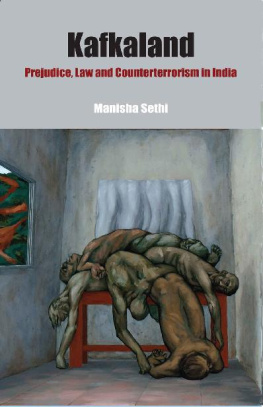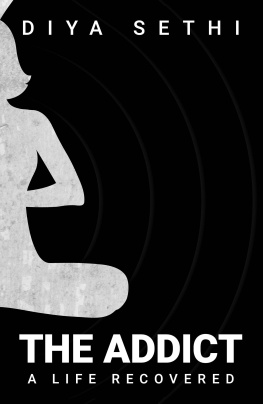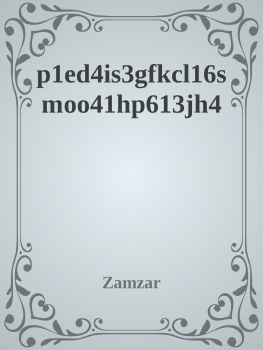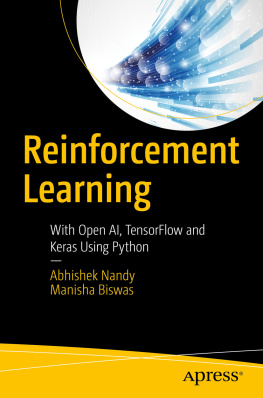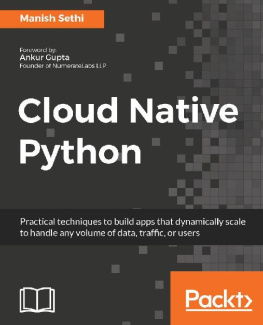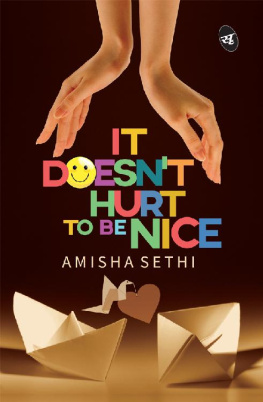Kafkaland

Kafkaland
Prejudice, Law and Counterterrorism in India Manisha Sethi

First Edition October 2014
copyrightManisha Sethi 2014
All rights reserved
No part of this book may be reproduced or utilised in any form or by any means, electronic or mechanical, including photocopying, recording or by any information storage or retrieval system, without the prior written permission of the publisher.
ISBN 978-93-83968-00-8
Three Essays Collective, B-957 Palam Vihar, GURGAON (Haryana) 122 017 India
Tel: 91-124 236 9023, +91 98681 26587
www.threeessays.com
Printed at Chaman Offset Printers, New Delhi
To the memory of
Saurabh Bittu Sethi,
musician, brother, who left us too early and
Mukul Sinha,
who taught us never to fear
Contents
Acknowledgements ix
Preface 1
StorieS from KafKaland
Dr. Narco and Other Stories from Kafkaland 11
The Life and Death of Gulam Yazdani
Terrorisms True Lies
Malegaon and the Fiction of Muslim Revenge 53
law of the land
Death by Encounter
Why the Ishrat Jahan Case Frightens Our Commentators 85
Crime and Punishment
Sinful Liberals and the Investigative Bias 113
Temples of Justice
Truth is Stranger than Fiction
the Security metaphySic
The Security Metaphysic
Appendices 191
Index 212
Acknowledgements
This book is the product of the collective energies of many people. First, my colleagues and comrades at Jamia Teachers
Solidarity Association Sanghamitra, Sohaib, Adil, Ghazi bhai, Farah, Azra, Ambarien, Bhatt Saab, Nipa, Manoj, Rahul and others our work together is at the core of this book.
Crime and Punishment and Sinful Liberals and the Investigative Bias have been published earlier on the blog Kafila.org (the former as Delhi Police Special Cell: Encounters, Frame up, Impunity). A shorter version of the chapter on Malegaon was published in Outlook as Who Traced the RDX? (29 July 2009). A long essay commissioned by Hardnews is also reproduced here; an earlier version of Terrorisms True Lies was also published in Hardnews. These pieces have been revised and updated wherever necessary. I am thankful to the publishers and editors for publishing my articles and then graciously allowing me to draw upon them for use in this vol-ume. Thanks to Shuddhabrata Sengupta, Sanjay Kapoor and Saba Naqvi for their support. The chapter on encounter killings was presented at a seminar at Nehru Memorial Museum and Library. I am thankful to colleagues at NMML for their com
xd
Kafkaland
ments. Asad Zaidi saw a book where I didnt. He was a most patient and indulgent publisher.
The generosity of many people has sustained this work.
In Delhi: Shabnam Hashmi, Vrinda Grover, Abu Zafar, Ranganath Singh, Kumar Sundaram, Mazin Khan, Dr. Za-frul Islam Khan, Iftikhar Gilani, Muzamil and Paramjeet; In Karnataka: Akmal Razvi, Sidharth Narrain, Imran Khan, Musab Iqbal, Tariq, Irshad Desai, Muthiur Rehman and Aijaz Mirza;
In Mumbai: Yug Mohit Chaudhuri and Sharib Ali; In Madhya Pradesh: Ansar Indori, Shafeeque Siddiqi, Imran, Sarfaraz and Noor Mohammad Advocate; In Uttar Pradesh: Shoaib Mohhamad, Tariq Shafeeque, Masihuddin Sanjari, Rajiv Yadav, Shahnawaz and Ravin-dra Rai;
Gulam Rabanni in Hyderabad.
I am beholden to the NMML for allowing me the time and freedom to undertake the travels necessary for this work.
I am grateful for the good counsel of Trideep Pais, Jawa-har Raja, Mayur Suresh, Rajat Kumar, Sarim Naved, Ashwath Sitharaman, Salar Khan and Ashok Agrwaal. Special thanks are owed to Sushant Sinha of Indiankanoon.org who can magically retrieve any untraceable judgement upon request; to Venkatesh Nayak, who is a wizard with RTIs, and to Subasri Krishnan for lending me her excellent film, This or that Particular Person.
Rajeev Kumar prepared the tables on budget illustrating the comparative expenditure on defence.
My fellow travellers in this journey Mahtab and Mansi
thank you for the comradeship. Friends who can be relied upon for warmth and cheer in times of despair: Poornima, Amit, Harsh, Satya, Sadiq, Mona, Inteshar, Imran, Mahmood, Anusha and Iqbal Ahmad.
Finally, my parents who put up with a negligent daughter, and Tanweer, for sharing my life, thank you.
Acronyms
ATS:
Anti-Terrorism Squad
CRPC: Criminal Procedure Code
FIR:
First Information Report
HUJI: Harkat-ul-Jihad-al-Islami
IM:
Indian Mujahideen
IPC:
Indian Penal Code
LET:
Lashkar-e Tayyaba
MCOCA: Maharashtra Control of Organised Crime Act NDA:
National Democratic Alliance
NSA:
National Security Advisor
NSCS: National Security Council Secretariat POTA: Prevention of Terrorism Act
R&AW: Research and Analysis Wing SIMI:
Students Islamic Movement of India
SPO:
Special Police Officer
STF:
Special Task Force
TADA: Terrorist and Disruptive Activities (Prevention) Act UAPA: Unlawful Activities Prevention Act UPA:
United Progressive Alliance
xiid
Kafkaland
Preface
Once I had to drive a Mumbai ATS inspector across the city. He chatted about his B.A. degree (he too had studied Sociology), took an interest in my Ph.D. disserta-tion (poor, young girls were initiated into nunhood), recommended the SUV that zipped past us (value for money). But we were not out sight-seeing. In the rear seat was sitting a young man whose brother had been literally plucked by the ATS from the Delhi Police Special Cell, which he was helping track down some suspects. He was then charged with conspiring the July 2011 Zaveri bazar blast in Mumbai. The ATS had now come calling on this young man, to take him to Mumbai, ostensibly to
question him. But questioning often means warrantless arrests, illegal detention and torture leading to leaked stories in the media and charges of terrorism.
The ATS team had arrived in the middle of a press conference. This effectively frustrated their simple enough plan to carry away Nadeem1 for uninterrupted interrogation in the comforts of their police station. Slightly 1 Name changed.
2d
Kafkaland
irritated at our presence, and shivering from the assault of the Delhi December cold, the Assistant Commissioner of Police (ACP) who headed the team began to inquire from this young man. The gist of his inquisition was this:
What did your brother tell the Special Cell?
Wouldnt it be simpler to pose this question to the Special Cell?, we asked.
Protocol.
Apparently, the protocol is to whisk away suspects, or even their brothers.
So, now, here we were, discussing sociology, Jain nuns and large cars, headed towards Nadeems house for a search, at the other end of the city.
Why do you illegally detain suspects?, I turned to a less pleasant topic. How would it hurt to send summons to those you wish to interrogate?
The Inspector looked genuinely hurt. Illegal detention? Never. We always take the person out for a walk after 23 hours.
It was one of those tragi-comic moments when one isnt sure whether to laugh or to cry. Here was an officer of law telling us that the legal requirement of producing an arrestee before a magistrate within 24 hours could be circumvented legally.
Next page
